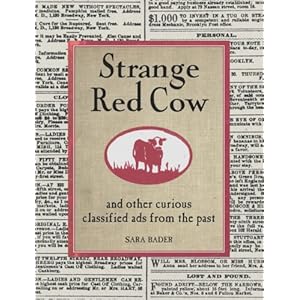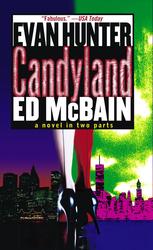Lois McMaster Bujold is another of those authors whose work sits squarely on the three-legged stool of writing, storytelling, and characterization. The blurb her publishers put on many of her book jackets, with which I agree heartily, is SF writer Anne McCaffrey’s comment, “Boy, can she write!” The difference between her work and Michael Gruber’s, about which I’ve already written, is that Gruber’s language is the kind that we think of—in the most positive way—as “prose.” Bujold’s prose is the invisible kind whose sole purpose is to focus our attention on the story and the characters.
One aspect of Bujold’s genius is the deft mixing of genres. The Vorkosigan saga is inevitably shelved as science fiction. Its fictional universe is galactic in scope, and Bujold, the daughter of an engineer, handles the scientific aspects of speculative fiction with intelligence and without getting tedious. But many of the books are also mysteries that are solved only because Miles Vorkosigan is very, very smart, doesn’t need much sleep, and has a genius for thinking outside the box.
Although the series takes place in a galactic setting, it focuses on the conflict between a science-fiction kind of universe and a planet that has recently emerged from a low-tech Time of Isolation, complete with horses and a feudal aristocracy. The stories are engrossing, the world-building impressive, wit and ideas and moral dilemmas abound. On top of that, The Warrior’s Apprentice and The Vor Game are coming-of-age novels. Memory is definitely a character-driven mystery. Komarr is a political thriller with elements of romance and psychological suspense. Cryoburn is science fiction, mystery, galactic political thriller, and immensely satisfying character-driven novel all at once.My favorite, A Civil Campaign, crosses galactic space opera with comedy of manners and comes up with a complex, intensely satisfying, and laugh-out-loud funny read. Bujold dedicates the book to Jane, Charlotte, Georgette, and Dorothy—and I think Austen, Bronte, Heyer, and Sayers, once they adjusted to the premises of the SF genre, would all love it.
And the characters—oh, the characters! Those typing monkeys could never have come up with Miles: stunted and fragile due to exposure to poison gas in utero, hyperactive, magnificently brainy and irreverent, complex, sensitive, and attractive to women smart enough to appreciate him. One of his tribulations is the fact that on his planet, still recovering from being nuked two generations ago, they have an aversion to mutants and are just beginning to learn not to kill deformed babies at birth. Another is the way he gets punished for pushing himself physically, from breaking both legs during a military training exercise to getting killed in a galactic battle, which would be okay, because he’s immediately prepped for cryorevival, except somebody goes and loses the container they’ve popped him into, and when he wakes up he has amnesia....
Here’s the flavor, in a delightfully feminist scene at the end of Komarr between Miles and Ekaterin, who’s been badly burned by an emotionally abusive marriage in a culture that represses women.
“Have you had a great many girlfriends?” If he hadn’t, she’d have to dismiss her whole gender as congenital idiots. The man could charm snakes from their holes, nine-year-olds from locked bathrooms, and Komarran terrorists from their bunkers. Why weren’t females following him around in herds?...
“The usual progression, I suppose. Hopeless first love, this and that over the years, unrequited mad crushes.”
“Who was the hopeless first love?” she asked, fascinated.
“Elena. The daughter of one of my father’s Armsmen, who was my bodyguard when I was young.”
“Is she still on Barrayar?”
“No, she emigrated years ago. Had a galactic military career and retired with the rank of captain. She’s a commercial shipmaster now.”
“Jumpships?”
“Yes....There was Elli, She was a free mercenary trainee when I first met her.”
“What is she now?”
“Fleet Admiral. Actually.”
“So she was this. Who was that?”
“There was Taura.”
“What was she, when you first met her?”
“A Jacksonian body-slave....”
“So what is she now?
“Master Sergeant in a mercenary fleet.”
“The same fleet as, um, the this?”
“Yes.”
... “And...?” she led him on, beginning to be immensely curious as to how long he’d keep going. Why in the world did he think all this romantic history was something she ought to know? Not that she would stop him....
“Mm...there was Rowan....”
“And she was...?”
“A technical serf of House Fell. She’s a cryo-revival surgeon in an independent clinic on Escobar, now....”
...Tien had spent a decade protecting her so hard, especially from anything that resembled growth, she’d felt scarcely larger at thirty than she’d been at twenty. Whatever it was Vorkosigan had offered to this extraordinary list of lovers, it hadn’t been protection.
... “So...what about the unrequited mad crush?”
“Ah, that was Rian. I was young, just a new lieutenant on a diplomatic mission.”
“And what does she do, now?”
He cleared his throat. “Now? She’s an empress.”
Miles and Ekaterin remind me a lot of Lord Peter Wimsey and Harriet Vane. And like Lord Peter and Harriet, Miles and his family and friends are the kind of people readers like me fall in love with, wish they could meet and befriend and invite over for dinner, and hunger to hear more about. They are endearing, smart, and funny—intensely real, achingly delicious. I can read about characters like these till the cows come home, over and over.






 The other totemic association I have with Berlin is currywurst. All
over town there were food stalls set up in the street, and wurst
stands were the most popular. You got brats or a knock with potato
salad and a hard roll, with a dab of mustard on the side, on a paper
plate. The odder iteration was currywurst. Basically pork sausage
slathered in ketchup mixed with curry powder, and served with French
fries. An acquired taste, as you might imagine, but once acquired, not
forgotten.
The other totemic association I have with Berlin is currywurst. All
over town there were food stalls set up in the street, and wurst
stands were the most popular. You got brats or a knock with potato
salad and a hard roll, with a dab of mustard on the side, on a paper
plate. The odder iteration was currywurst. Basically pork sausage
slathered in ketchup mixed with curry powder, and served with French
fries. An acquired taste, as you might imagine, but once acquired, not
forgotten.





























